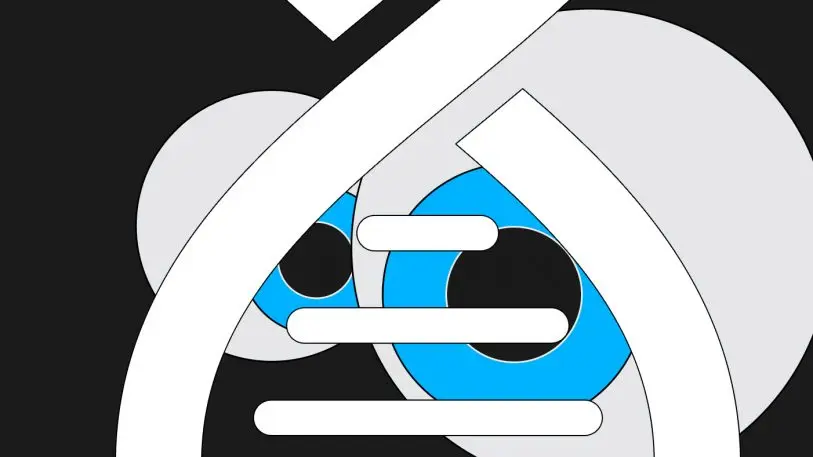The year is 2034. The world is divided into protected biometric data zones, and every time you go anywhere, your DNA and other biological elements of your body are authenticated across vast databases to confirm your identity (and that you haven’t broken any corporate or legal rules). A new economic and social class system has emerged, where the wealthy can pay to anonymize and protect their data. Powerful companies mine everyone else’s biodata, while governments create universal genetic databases to keep tabs on citizens.
You have no idea where your data really is, who owns it, and who has access to it.
It sounds like a hellish dystopia, but it’s not coming from a science fiction author. It’s one overarching trajectories that Amy Webb, a professor of strategic foresight at the NYU Stern School of Business and the founder of the consulting firm Future Today Institute, and her team identified and published in their 12th annual Emerging Tech Trends report. Webb writes about these kinds of scenarios to help people understand realistic outcomes to their decision-making, basing her scenarios on information from the technological fringes that aren’t typically written about in the media, and then extrapolating forward.
She laid out this dystopian scenario at the South By Southwest conference in Austin over the weekend. It’s based on one of the biggest societal trends Webb is seeing right now: that privacy is dead.

What exactly is biometric scanning? There’s emotion detection, which Kia is building into its cars, ostensibly so that the operating system can recognize when you have road rage and help calm you down. Amazon filed a patent for emotion recognition, and Webb says she’s sure that it will come into our lives in the form of Alexa taking baseline readings of your voice and then using machine learning over time to understand when you’re depressed, anxious, happy, or have a cold. In 2018, Walmart filed a patent for a connected shopping cart that would gather health data like your heart rate and temperature to monitor how stressed you are as you move around the store.
Then there’s genetic recognition–and though many people have voluntarily given up their DNA to companies like Ancestry and 23andMe, there are few laws around what this biodata can be used for (the FTC is investigating those companies over their use of data). Webb says that she’s seeing a rise in calls, particularly in law enforcement, for universal genetic databases, where everyone’s biometric data is put in one place. While Webb says this could be used for good, like in helping medical research, it could also be used by authoritarian governments to track people. Webb says that countries like Saudi Arabia are already looking into creating these universal genetic databases.
Combine all this with wearables, which make it even easier for people to voluntarily give up biodata to the companies that make their devices, and you start to get a pretty harrowing picture of a world where personal privacy has been left by the wayside in support of corporate and governmental interests.
But this dystopian scenario isn’t inevitable. In her SXSW talk, Webb also discussed positive and neutral scenarios that could play out instead. In the neutral scenario, which she thinks is a little more likely, Webb envisions a future where just a few tech companies end up with most of our biometric data, but it’s not interoperable, meaning the data can’t move between companies (and users wouldn’t be able to either).
She also painted a picture of a scenario where the end of privacy isn’t necessarily a bad thing–where people understand how, when, where, and why tech companies and others are collecting their data and it improves peoples’ lives. Passwords, boarding passes, and even driver’s licenses are no more, replaced by our biometric fingerprints. “Tech enriches our lives! Privacy is dead but we’re okay with it,” Webb postulates, gesturing at a world where there are clear regulations around privacy, consent, and transparency and that companies abide by those rules and respect people’s privacy in general. Unsurprisingly, she thinks the likelihood of this future occurring is very small.
In her talk, Webb posed a set of questions that everyone should be thinking about as the national conversation around data governance and ownership grows:
- Who owns your biometric data?
- Should you have a right to keep your emotions, mental state, and other biometric details private from persistent recognition?
- How can your organization or company use this biodata safely and ethically?
- Who actually owns your DNA?
- Can you trademark your DNA so no one else can copy or use it?
- If you don’t technically own your DNA, then who owns your body and all the stuff in it?
These are crucial questions for us to be asking right now, especially as lawmakers debate a federal data governance and privacy law. Even Silicon Valley venture capitalists think that the data privacy conversation is long overdue.
So what do you think? Send your thoughts to any of Webb’s questions to CoDTips@fastcompany.com.
Recognize your brand’s excellence by applying to this year’s Brands That Matter Awards before the early-rate deadline, May 3.